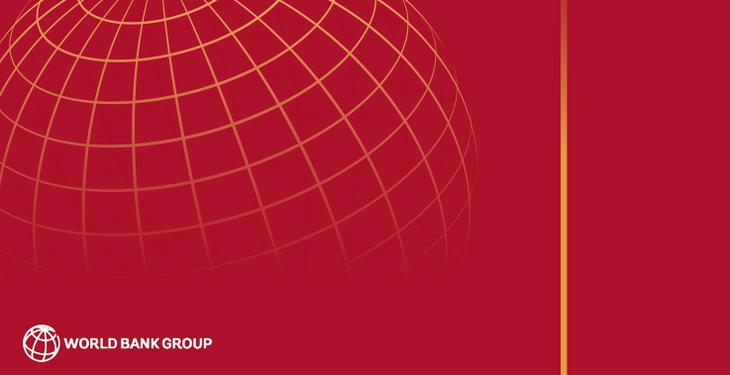In its annual assessment of global prospects the World Bank predicts continued, though somewhat slower, growth this year and next. The Bank’s forecast for the global economy is expansion this year of 2.9% and 2.8% in 2020. But overhanging the broadly favorable outlook are rising concerns that could mean economic performance falls short.
The World Bank estimates that Romania’s economy will grow this year by 3.5%, a forecast lower by one percentage point than in June 2018. The BM also reduced its estimate for 2020 and 2021 to 3.1% and 2.8%, respectively. In 2018, Romania’s economy grew by 4% in the first quarter, with 4.1% in the second quarter and 4.3% in the third quarter, according to the latest data presented by the National Institute of Statistics.
Activity in Europe and Central Asia (ECA) is estimated to have slowed to 3.1 percent in 2018 from 4 percent in 2017, reflecting the marked weakness in activity in Turkey in the second half of the year. Excluding Turkey, regional growth remained unchanged at an estimated 2.9 percent in 2018, as slowing activity in countries in the western part of the region, such as Bulgaria and Romania, offset an acceleration in the eastern part of the region that benefitted from higher oil prices, writes „Global Economic Prospects – Darkening Skies” report, adding that regional trade growth declined during 2018.
In addition, Romania is one of the three countries in the region that, together with Ukraine and Turkey, increased its monetary policy interest rate last year. The monetary policy rate is now 2.5% as it was set on May 8, 2018, rising from 2.25% in April 2018. The increase was due to accelerated inflation.
„In Central Europe, tightening labor markets and increasing energy prices have pushed inflation up toward target, with monetary policy remaining stable in most countries. One exception is Romania, where robust domestic demand pushed inflation above the upper bound of the target band, prompting monetary policy tightening. Gradually accelerating inflation has also led to policy tightening in Ukraine”, note the authors of the report.
Soft landing
While the global economy is slowing down it’s likely to be what the Bank’s economists call a “soft landing”. The slowdown started in the middle of last year and it has so far been “orderly”. The predicted slowdown is focused on the rich countries, particularly the US, although it will continue to expand more rapidly than either the Eurozone or Japan according to the Bank’s forecasts.
The US slowdown is the result of the fading impact of President Trump’s tax cuts and by 2021 its growth will have almost halved – to 1.6% compared with 2.9% last year.
Change of gear
On the other hand, growth in emerging markets and developing economies is likely to gather pace somewhat despite the continued cooling down in China – a process which began at the start of the decade. By 2021 growth in China is expected to be 6%, which is still pretty strong, but it is a marked change of gear for an economy that expanded by an average of 10% annually between 1980 and 2010.
However, the title of this year’s report is “Darkening Skies”, with reference to the international commerce already weakening, and conflict over trade especially between the US and China is one of the major risks.
As these are the two largest national economies on the planet, the Bank has calculated that 2.5% of global trade is affected by the new tariffs – trade taxes – that were imposed last year, and it would be double that if the further tariffs that have been discussed were implemented.
Financial markets are also a risk. The chances of disorderly developments have increased, says World Bank. If interest rates are increased again in the US, or if the dollar gains sharply, it could have an impact on emerging and developing economies.
Brexit appears in the Bank’s assessment as a possible risk for countries that are especially reliant on selling to Europe. If the UK’s exit takes place with no agreement there is a chance of significant economic damage to both the UK and the EU which could then affect countries in Eastern Europe and North Africa which are closely integrated with Europe.
